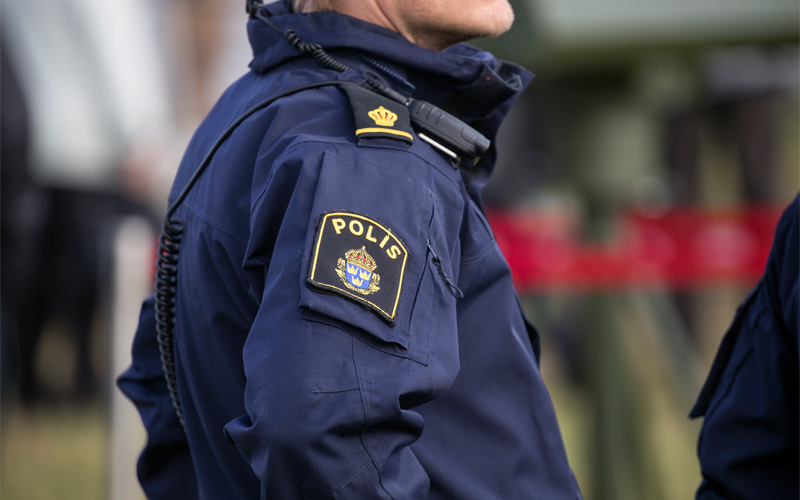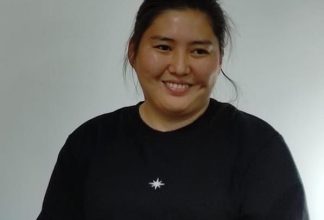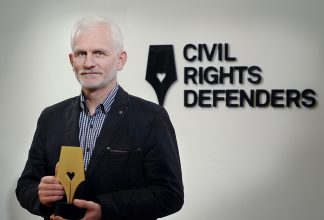How We Work to Combat Ethnic/Racial Profiling

Ethnic/racial profiling is a reality and a problem in many countries. In Sweden, the issue has played a central role in several high-profile events, including the 2013 Husby riots and the register of Roma individuals kept by the Skåne police. Since several years, Civil Rights Defenders has been working to monitor the issue and influence the police and politicians to strengthen efforts to combat ethnic/racial profiling. You can read more about our work below.
What Is Ethnic/Racial Profiling?
Ethnic/racial profiling means using perceived ethnicity, colour, or religion as a selection criterion, for example when the police singles out who to stop at a checkpoint. It can also be a question of police work carried out in other ways that negatively affect certain groups, such as through focusing resources on certain types of crime or certain geographical areas.
Despite the lack of systematic research on the subject, there is little doubt that ethnic/racial profiling occurs. This became clear during the so called REVA inspections, which were carried out by the Swedish Police Authority with the aim of streamlining the deportation of undocumented persons. Ethnic/racial profiling was also at the core of the register that the Skåne police authority kept of Roma individuals and is a permanent feature in efforts to combat terrorism, sometimes leading to the wrongful identification of innocent individuals.
Again and again, people belonging to minority groups testify about their experiences of being subjected to ethnic/racial profiling by the police.
Why Is Ethnic/Racial Profiling an Issue?
Ethnic/racial profiling is illegal and contrary to the European Convention on Human Rights as well as the Swedish Constitution. It is a discriminatory practice that violates human rights.
It is both offensive to the individual and has a negative effect on society as a whole. It shatters public confidence in the police, making it difficult for the police to do their job – to solve crimes and protect people.
What is more, international research shows that, as a method, ethnic/racial profiling is an inefficient way to solve crimes. It is important to emphasise that it affects large numbers of innocent people who have committed no crimes.
How Does Civil Rights Defenders Work to Combat Ethnic/Racial Profiling?
For several years, Civil Rights Defenders has carried out advocacy aimed at the police and politicians to combat ethnic/racial profiling. Together with Stockholm University, we produced the report Randomly Selected – the first report in Sweden to investigate ethnic/racial profiling in a broader perspective. It is based on qualitative interviews with both police officers and individuals who have been subjected to profiling.
We have met with representatives of the police management, the Swedish Police Union, and the government on several occasions to discuss the issue and strengthen efforts to combat profiling. We have also organised seminars to spread knowledge and spark debate.
In June, we arranged meetings with the Swedish Police Union; the Minister for Home Affairs Mikael Damberg; and Åsa Lindhagen, minister for gender equality, with responsibility for anti-discrimination and anti-segregation. The meetings were attended by representatives of the police authorities in the UK and Spain, who shared positive experiences of working to combat profiling. We also invited experts who shared examples of success stories showing how trust between the police and the public can be strengthened by efforts to counteract profiling. Now, we are working to conduct the same meetings with the police management this autumn.
By hosting these meetings, we want to increase the knowledge of the police leadership and, with the help of good examples of efforts to combat ethnic/racial profiling, inspire the police to take up the issue.
How Do We Work with Those Affected?
The report Randomly Selected, produced by Stockholm University on behalf of Civil Rights Defenders, is based on in-depth interviews with Afro-Swedes, Muslims, and Roma. The work to compile the report was reviewed by a reference group consisting of representatives from various organisations working to combat, for example, Afrophobia and anti-Gypsyism. Together with the report’s author, the criminologist Leandro Schclarek Mulinari, the reference group met several times and maintained a continuous dialogue. Many of the representatives in the reference group had personal experiences of being subjected to profiling.
What Do We Want to Change?
The police must start viewing ethnic/racial profiling as a structural problem that needs to be solved by changing structures within the police, for example by reviewing and changing working methods. The police management must take the issue seriously. Attitudes and working methods need to change from the top down. We also want the government to instruct the Swedish National Council for Crime Prevention to review the work of the police, and instruct the Swedish Police Authority to develop new working methods to avoid discrimination.
In addition, people subjected to discrimination must be able to obtain redress, for example through an amendment to the Discrimination Act ensuring that police actions are covered by the law, too.
It is paramount that Sweden has a police force with working methods that do not lead to discrimination.
Read More
You can read more about our report Randomly Selected here.


